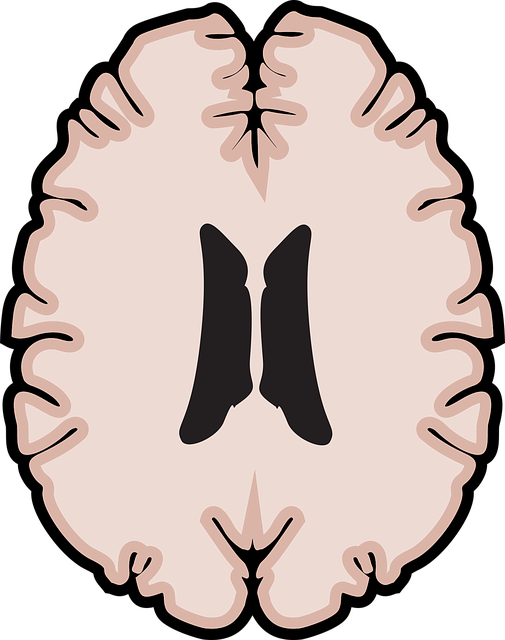In a stressful modern world, chronic stress can lead to serious health issues. Broomfield Post-Traumatic Stress Disorder (PTSD) Therapy offers specialized care using evidence-based techniques like CPT and EMDR to help individuals process trauma safely. This approach combines risk assessments with compassion cultivation practices for emotional healing and resilience building. Additionally, mindfulness strategies, exercise, and work-life balance are crucial for stress prevention, especially in high-pressure fields like healthcare. By integrating these methods, Broomfield PTSD Therapy provides practical tools for managing stress, anxiety, and trauma, enhancing overall mental well-being.
“Stress management techniques are essential tools for maintaining mental well-being, especially in today’s fast-paced world. This comprehensive guide explores effective strategies to combat stress, focusing on the role of mindfulness and relaxation. We delve into understanding stress and its impact, offering insights into conditions like Post-Traumatic Stress Disorder (Broomfield PTSD). By examining various techniques, from cognitive behavioral therapy to holistic practices, readers will gain valuable skills to build resilience and navigate life’s challenges with greater ease.”
- Understanding Stress and Its Impact
- Broomfield Post-Traumatic Stress Disorder (PTSD) Therapy: An Overview
- Techniques for Effective Stress Management
- Incorporating Mindfulness and Relaxation Strategies
- Building Resilience and Coping Skills
Understanding Stress and Its Impact

Stress is a natural response to demanding situations, but when it becomes chronic, it can significantly impact our overall well-being. Understanding stress involves recognizing its various forms, such as acute or episodic stress and post-traumatic stress disorder (PTSD). In today’s fast-paced world, many individuals face persistent stress due to work pressures, personal relationships, or life transitions. Unmanaged stress can lead to physical health issues like elevated heart rate, weakened immune system, and sleep disturbances, as well as mental health challenges such as anxiety, depression, and even PTSD.
The impact of chronic stress is far-reaching, affecting not just our minds but also our bodies and relationships. It’s crucial to address stress early on to prevent its detrimental effects. Broomfield Post-Traumatic Stress Disorder Therapy offers valuable tools for managing both acute and chronic stress. Compassion cultivation practices have been shown to be effective in reducing the symptoms of PTSD and fostering resilience. By incorporating mental illness stigma reduction efforts, individuals can develop inner strength, enabling them to navigate life’s challenges with greater ease and composure.
Broomfield Post-Traumatic Stress Disorder (PTSD) Therapy: An Overview

Broomfield Post-Traumatic Stress Disorder (PTSD) Therapy offers a specialized approach to treating individuals who have experienced traumatic events. This form of therapy focuses on helping clients process and overcome the intense emotions and memories associated with trauma, aiming to restore emotional regulation. The process involves creating a safe space for clients to recall and express their experiences, while teaching them effective coping strategies to manage stress and avoid re-traumatization.
Broomfield PTSD Therapy integrates various evidence-based techniques, such as cognitive processing therapy (CPT) and eye movement desensitization and reprocessing (EMDR), to facilitate healing. Mental health professionals conducting this therapy also emphasize a comprehensive risk assessment to ensure client safety and well-being throughout the therapeutic journey. By combining these strategies, Broomfield PTSD Therapy empowers individuals to regain control of their lives and develop healthy stress management skills.
Techniques for Effective Stress Management

Managing stress effectively is a vital skill to cultivate, especially in today’s fast-paced world where demands on our time and mental resources can be overwhelming. There are numerous techniques that have proven beneficial for individuals seeking to mitigate stress levels and promote overall well-being. One such powerful tool is Broomfield Post-Traumatic Stress Disorder (PTSD) Therapy, which offers specialized support for those dealing with trauma. This therapeutic approach helps individuals process and work through traumatic experiences, providing valuable coping mechanisms to manage stress and anxiety relief.
In addition to PTSD therapy, there are various strategies that can be employed to prevent burnout, particularly among healthcare providers who often face intense pressure. Burnout prevention strategies include prioritizing self-care practices such as regular exercise, mindfulness meditation, and maintaining a healthy work-life balance. By integrating these techniques into daily routines, individuals can effectively manage stress, enhance resilience, and improve overall mental health.
Incorporating Mindfulness and Relaxation Strategies

Incorporating mindfulness and relaxation strategies is a powerful tool in managing stress and promoting mental well-being, especially for individuals dealing with issues like post-traumatic stress disorder (Broomfield Post-Traumatic Stress Disorder Therapy). Practices such as compassion cultivation can help individuals develop a non-judgmental awareness of their thoughts and emotions, fostering a sense of calm. These techniques encourage people to focus on the present moment, reducing rumination on past traumas or future worries.
Mindfulness meditation and deep breathing exercises are simple yet effective tools that anyone can use. Healthcare providers can also benefit from integrating these practices into their training (Healthcare Provider Cultural Competency Training). By incorporating mindfulness into therapy sessions, professionals can enhance their ability to support clients in developing resilience and coping mechanisms, ultimately improving overall mental health awareness and well-being.
Building Resilience and Coping Skills

Building resilience and coping skills are vital components of effective stress management. Through various techniques such as self-awareness exercises, individuals can gain a deeper understanding of their triggers and develop strategies to respond rather than react to stressful situations. This increased self-awareness fosters emotional regulation, enabling people to navigate challenges with more composure.
Social skills training also plays a significant role in enhancing resilience. By learning effective communication and conflict resolution methods, individuals can better manage interpersonal stressors. Additionally, participating in stress management workshops organized by reputable institutions, like Broomfield Post-Traumatic Stress Disorder Therapy centers, offers valuable tools for coping with anxiety and trauma. These structured programs equip participants with practical skills to mitigate the impact of stress on their daily lives.
Stress management techniques are essential tools for navigating life’s challenges, especially in cases of post-traumatic stress disorder (Broomfield PTSD). By understanding the impact of stress and employing effective strategies, individuals can enhance their resilience and overall well-being. Incorporating mindfulness, relaxation, and building coping skills allows one to transform their relationship with stress, fostering a sense of calm and control. These techniques empower folks to navigate stressful situations with grace and adapt to life’s uncertainties.














